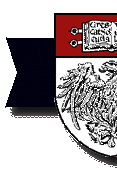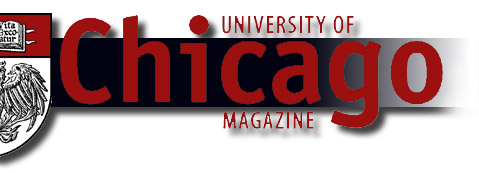 |

Land down
under
Traveling to Australia on a Watson Fellowship in 1984, Elizabeth
Povinelli watched as the city of Darwin encroached on the rural
area of Madpil. “Sites in the country are suffused with the
memories of deceased relatives, of what they did there, of the experiences
you or others had with them,” she says. “It’s a scene
that is richly phenomenological, then here comes the bulldozer,
and it’s gone—it’s flattened. You can’t even
tell what was there.”
Since then, Povinelli, an anthropologist, has been helping Australian
Aborigines fight their way through legal proceedings to reclaim
their land from European settlers. After earning a Ph.D. in anthropology
at Yale, she went to Emory on a Mellon post-doctoral fellowship.
Now a professor at the University of Chicago, she frequently travels
to Australia to work on land-rights issues.
In late September, Povinelli returned to campus after several
weeks working down under on three cases on behalf of the Wagaman,
the Wadjigiyn, and the Wagaitj. She helped lawyers for the native
groups prepare various documents, including genealogies, ethnographies,
sacred site records, and descriptions of the groups’ members,
lands, and customs. Povinelli gathered the information through ethnographic
research and searches of archival records.
The cases test provisions of federal legislation that stipulate
the terms under which indigenous groups can reclaim certain Australian
territories. Through her writings and fieldwork, Povinelli hopes
to draw attention to what she views as the legislation’s problematic
bias: a largely Western conception of family rooted in blood descent.
Aborigines’ ties to the land, she argues, are based more on
“local understandings of the mutual embodiment of land and
people than on decontextualized models of genealogical descent.”
Aboriginal groups, she says, “believe they share ‘one
body’ with other people and the country through maroi,”
conception spirits that slip from the land into a person.
In January 1994, her Labor’s Lot: The Power, History,
and Culture of Aboriginal Action (University of Chicago Press)
explored one Aboriginal community’s relationship between human
embodiment and land rights. In her forthcoming book, The Cunning
of Recognition (Duke University Press), she plans to examine
the politics of multicultural recognition in settler nations like
Australia, situating the problems of particular land rights and
cultural heritage laws within broader problems of liberal national
and state forms of cultural recognition.
Povinelli says her research in Australia has informed her work
for projects back on campus, providing an ethnographic basis for
her anthropological and theoretical research. Many of the problems
confronting the Aborigines resonate with general problems of liberal,
multicultural forms of nationalism, she says, noting that they are
“explicitly about claims that a minority population makes on
a majority population—a relationship between history, justice,
and materiality.”
For her contributions to the Late Liberalism project of the University’s
Center for Gender Studies, she has drawn parallels between the Aborigines
and other struggling groups, such as feminists, ethnic minorities,
and gay and lesbian groups. “These groups’ movements,
like Aboriginal rights, fracture whatever we used to describe as
liberalism,” says Povinelli. “We’re interested in
how liberalism is being reformed in response to these movements.
We do this because we want to know those histories and to make new
ones.”—E.C
|



